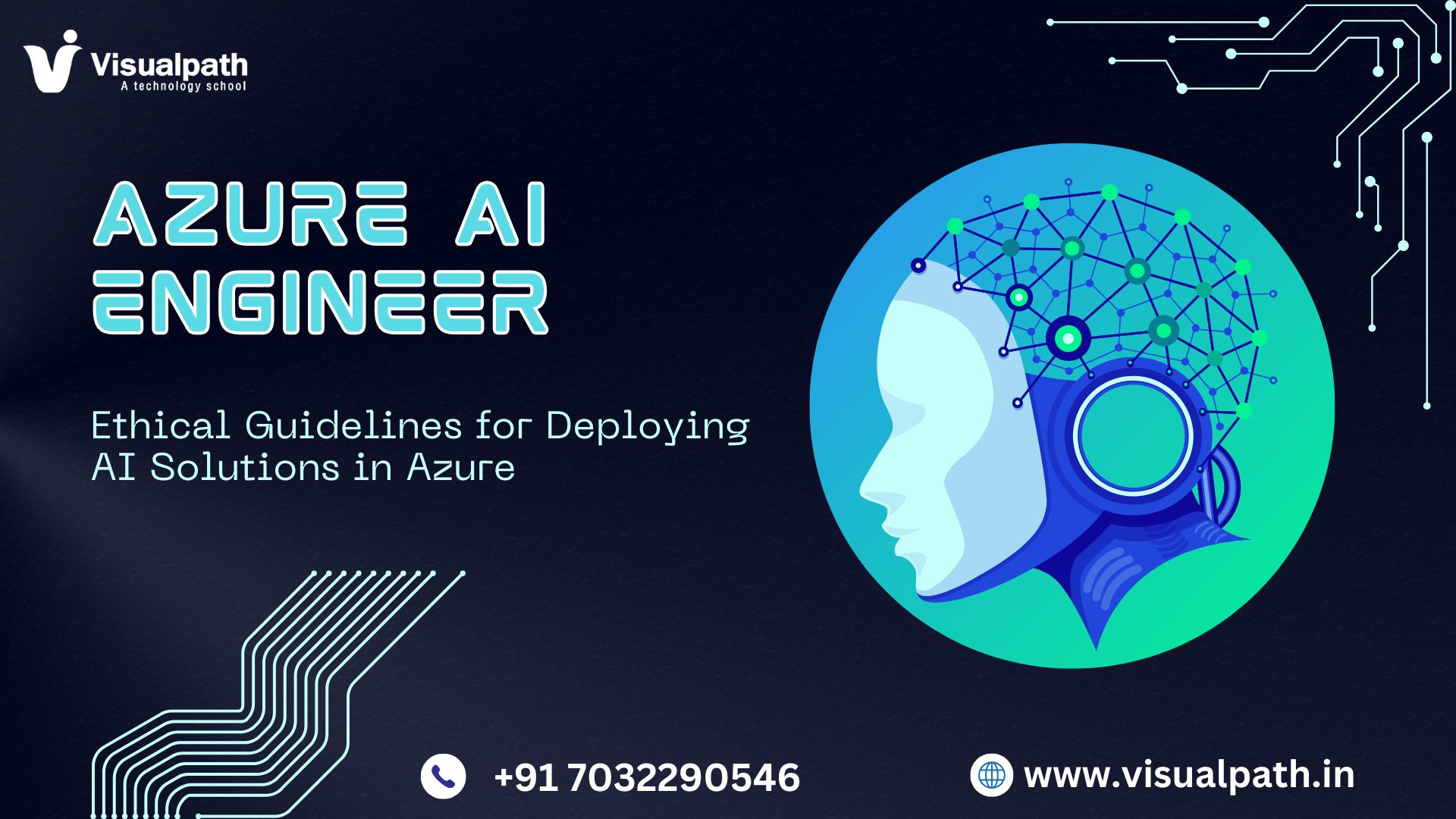Artificial Intelligence (AI) is transforming industries by enabling smarter decisions, automating processes, and enhancing user experiences. However, the power of AI also brings significant responsibility. As organizations increasingly adopt platforms like Microsoft Azure for AI development and deployment, adhering to ethical guidelines becomes critical to ensure the technology benefits society while minimizing harm.
This article explores the key ethical guidelines for deploying AI solutions in Azure, focusing on responsible use, fairness, transparency, data privacy, and accountability.
1. Fairness and Non-Discrimination
AI systems must treat all individuals fairly and avoid biases that can lead to discrimination. Azure AI tools, such as Azure Machine Learning and Cognitive Services, offer techniques to assess and mitigate bias in models. When training models, it’s essential to: Microsoft Azure AI Online Training
- Use diverse and representative datasets.
- Regularly test for bias in model predictions.
- Apply fairness metrics and correction strategies.
Microsoft’s Responsible AI Standard encourages developers to design systems that account for historical biases and avoid reinforcing stereotypes.
2. Transparency and Explainability
In Azure, services like InterpretML and Azure Machine Learning offer tools for explainable AI, allowing developers and stakeholders to interpret model behavior. Azure AI Engineer Certification
Key practices include:
- Documenting model development processes.
- Providing clear explanations for AI decisions.
- Sharing information about data sources and limitations.
This transparency builds trust and allows users to question or contest decisions made by AI systems.
3. Privacy and Data Protection
Respecting user privacy and ensuring robust data protection are foundational ethical principles. Azure AI adheres to Microsoft’s strong privacy standards and supports compliance with global regulations like GDPR and HIPAA.
To maintain data privacy:
- Use data encryption (at rest and in transit).
- Apply role-based access controls.
- Anonymize or de-identify sensitive information.
4. Accountability and Human Oversight
AI systems must remain under human control, especially when deployed in critical applications like healthcare or finance. Azure provides monitoring and auditing capabilities to ensure accountability. Azure AI Engineer Training
Recommended actions:
- Assign clear roles and responsibilities for AI governance.
- Enable continuous monitoring of AI performance and behavior.
- Set up feedback mechanisms to detect and address errors or ethical concerns.
5. Reliability and Safety
AI systems should function reliably under all expected conditions
Practices include:
- Stress-testing AI models before deployment.
- Using Azure ML pipelines for version control and rollback.
- Implementing alerting systems for anomalous behavior or model drift.
Safe and reliable AI prevents unintended consequences that could harm users or business operations. Microsoft Azure AI Engineer Training
6. Inclusiveness and Accessibility
Ethical AI must be inclusive and accessible to all users, including those with disabilities. Azure services comply with Microsoft’s accessibility standards, supporting language diversity, vision and hearing impairments, and various user needs.
Developers should:
- Include features like text-to-speech, speech recognition, and multilingual support.
- Test solutions with diverse user groups.
Conclusion
As AI continues to evolve, organizations deploying AI solutions on Azure must uphold strong ethical standards to ensure the technology is used responsibly. By embracing fairness, transparency, privacy, accountability, reliability, and inclusiveness, developers can build trust and drive positive outcomes in their AI initiatives.
Microsoft Azure provides robust tools and frameworks to support these ethical practices, empowering AI professionals to create impactful and responsible AI solutions.
Trending courses: AI Security, Azure Data Engineering, SAP PaPM
Visualpath stands out as the best online software training institute in Hyderabad.
For More Information about the Azure AI Engineer Online Training
Contact Call/WhatsApp: +91-7032290546
Visit: https://www.visualpath.in/azure-ai-online-training.html




